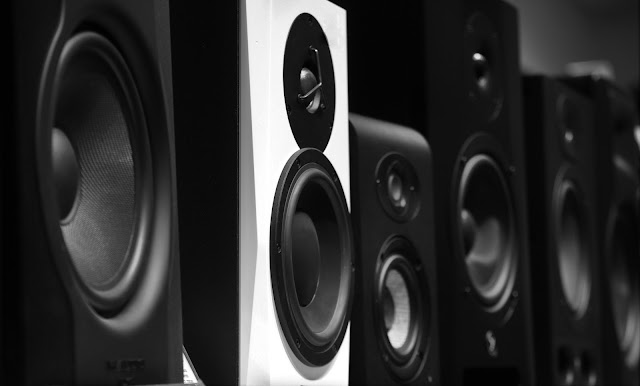As an *ahem* older audiophile (to clarify, not an elitist one with summit-fi budget, but a lover of sound-producing equipment) I grew up with music since the late 70s and consumed it in all ways that were available throughout the years.
Besides the ever-present crackle of an AM/FM radio, the earliest physical format I can remember toying with is 8-track. We had an old 8-track deck and our old (wood paneled?) station wagon even had one in the dashboard! Amazing!
Even when proper cassettes became popular, we had an adapter that would fit into the 8-track deck and allow us to play our new-fangled cassette tapes! I vividly remember buying, reading the inserts, and of course making custom mixes, with cassettes for years. I also was familiar with the winding of cassettes with pencils if things ever went awry.
In high school I was lucky enough to have a Walkman that I could blast my music on while riding the bus.
Digital
And then, one day in the early 90s, my dad changed everything when he brought home our very first CD player! I have no idea how we afforded one at the time! To be clear, it was not a Sony or major name-brand, but a Chinese player with a large LED display that was still amazing to us. I believe we had the one sample CD to listen to via our old home speakers, but my first experience with digital data being converted to music (not to mention the shiny CDs themselves) was mind-blowing.
Stocking up on CDs via those mail-order "deals" (12 CDs for a penny...) and storing them in zippered CD binders seemed like everything I'd ever need in terms of music. Portable CD players with batteries and headphones were the next step and allowed me to take my precious, scratch-prone discs on the go.
Then, I began to notice some things that I was missing... What happened to my ability to make custom mixes (with my dual cassette deck) now that I had CDs? What if I didn't want to listen to the whole album?
Then in the mid-90s, we caught wind of a new format that had been getting popular in Japan, Minidisc!
It answered a host of issues with CDs:
- Better protection from scratches
- Smaller format, smaller players (that had shock buffers!)
- re-writeable discs for custom mixes
- ability to title tracks
- sounded great (technically not CD quality)
Unfortunately, the medium wasn't that popular in the states, but I had a Sharp MD-MS702 that I loved! I loved recording custom mixes and taking the time to painstakingly title the artist/track/remix, one character at a time!
I suppose with less responsibilities back then, it was something I loved taking the time to do.
Even with all the moving (moving out of parents' house, moving apartments a few times, getting a home, moving again, etc.), my box of Minidiscs came with me! I can't remember what happened to my beloved Sharp... I think I may have donated it to a family member but having recently taking the time to unpack my things, I found my Minidisc box!
Ah yes, the smell of 90s/2000s JPop!
So, what's a nostalgic audiophile to do with a box of obsolete media? Obviously, I had to find a player!
To the internet!
Knowing MDs were much more popular in Japan than here and having a good experience using Buyee in the past (a service to buy and ship products from Japanese auction/store sites), I knew where to start.
In the next post, I'll talk about how to use Buyee and what I look for when shopping for MD players/recorders.
Be careful - your wallet may suffer!

